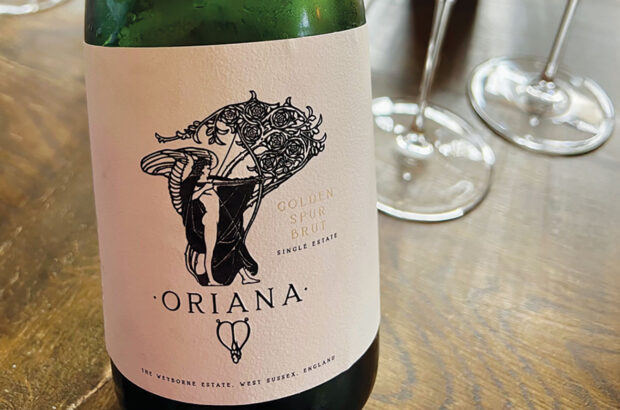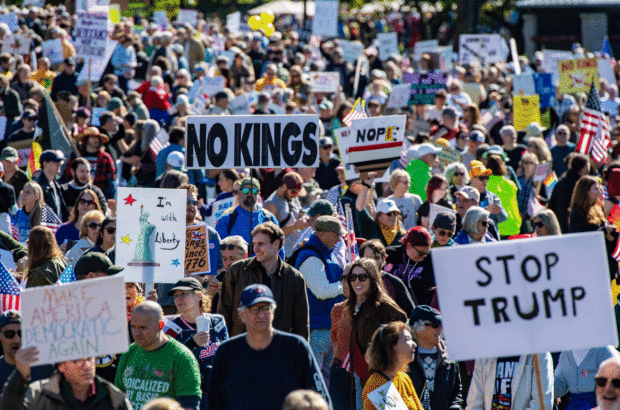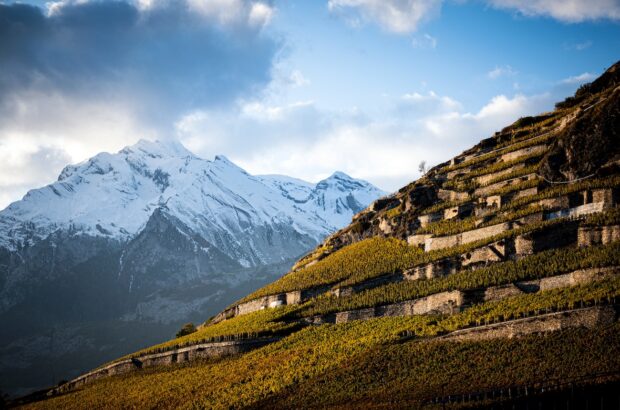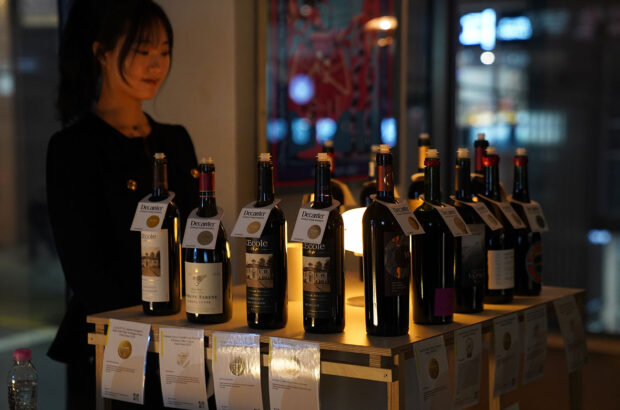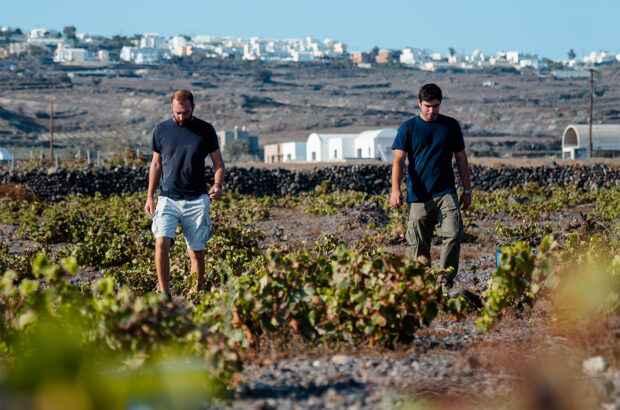Bill Harlan announced this month that his son, Will, has become managing director of the family winegrowing business, overseeing Harlan Estate, Bond, Promontory, and The Mascot.
It’s part of a wider generational shift that also sees Cory Empting promoted to MD of winegrowing, with the continued support of long-standing estate winemaker Bob Levy.
It’s a major moment for a family-owned wine producer that has previously been quoted as having a 200-year plan.
The wider team has been working for 10 years ‘to set a course for the next four decades’, said Bill Harlan, who founded Harlan Estate in 1984 and will continue to be active as founder and chairman. That team includes his daughter, Amanda, who also joined the family business in recent years.
Available on Decanter Premium: Matthew Luczy tastes six Harlan Estate wines back to 1992
‘We’ve been planning for this for quite a while,’ said Will Harlan, who began by overseeing The Mascot – made from Harlan Estate’s younger vines – and has headed-up the family’s Promontory winery since 2017.

Will Harlan. Photo credit: Harlan Estate.
‘I’m fortunate to be building upon an extremely strong foundation,’ Harlan told Decanter this week, adding that his tenure is going to be more ‘continued evolution’ rather than revolution.
‘Growth for us is deepening what we have’
He said he has seen Promontory as a creative outlet in recent years, ‘not just in terms of running the programme but in deciding the forward path’, but added, ‘I’m not trying to come in and change the vision or the paths of Harlan Estate or Bond.’
And yet there is ‘opportunity in every part of the business’, Harlan believes.
‘Growth for us is really deepening what we have,’ he said. ‘We have these three pillars with Harlan Estate, Bond and Promontory. This is a really strong foundation for the family.
‘I’m not trying to go out there and capture a bunch more properties, start new winegrowing endeavours or take what we have and try and buy more land and make more wine. My tenure, I think, will be about focus – on what we have and bringing them to the next level.’
Could he be tempted to buy more vineyards if an opportunity arose that was too good to turn down?
‘Never say never. We are always on the lookout for key pieces of land that we feel might have the potential to meet or exceed anything we’ve built so far.
‘With the Bond programme, we have five “crus” and we’ve always been looking for the sixth cru. That’s kind of been a bit of an outlet for keeping our eyes peeled, maybe working with a few potential sites that we feel could have potential for inclusion in that programme.’
Buying a vineyard beyond Napa is not on the agenda for now. ‘We believe in Napa Valley, we believe there’s so much more potential in Napa Valley, so I’m not out there thinking I’m going to maybe buy something in South America or the Old World. So focus is a key word for me.’
‘I’m very bullish on Napa Valley’
It may be 45 years since the Judgement of Paris, but Napa is still relatively young on the fine wine market. There has been plenty of investment in wineries and vineyards in recent years.
‘I’m very bullish on Napa Valley,’ said Harlan. ‘I think that we’re just at the beginning of our potential and really understanding our region and our plots of land here. It’s a very diverse region [and] I think it’s a really exciting time for Napa.’
He highlighted a growing focus on vineyard sites in general, with more wines reflecting a sense of place. ‘People are getting a much deeper understanding of their property.’
At the Harlan family domain, he cited work that ‘Cory [Empting] and his team are doing to understand our land at a deeper level – and then honing our abilities to translate that land more and more purely into the wine’.
On the market
Away from the winemaking side, part of the job will be to help oversee a balance between supplying the US market and continuing to build relationships with collectors and clients internationally.
Promontory is one of several US fine wines that is partly sold via the Place de Bordeaux.
Harlan said the family group has always sought a presence beyond its home market, as part of its vision to be among the world’s finest wine producers.
‘Sometimes it’s a little bit difficult because the US is a significant market for wine. But it’s been a very deliberate part of our strategy from the beginning to make sure we carve off enough allocation [and] spend enough time travelling around the world introducing our wines.’
He also described the direct-to-consumer channel – including mailing list releases – as ‘a fantastic model’, even if there is always room for improvement. He said this model fitted the family’s ethos of building ‘real and personal connections with people’.
Taking on the family domain
Wine wasn’t always the plan, and Harlan graduated from Duke University with a degree in philosophy. But he said he’s now grateful for the opportunity to lead the family winegrowing domain, and excited for the future.
He said there was never pressure to join the family firm, but ‘[my father] always made sure that I was on this track to understanding the business more. He really did have this vision of creating something that would last for generations’.
He recalled that his father let him see the process up close from a young age. ‘By the time I was about five years old, he was bringing me into meetings.’
The pair speak regularly about the business and that is expected to continue. ‘He’s not stepping down,’ said Harlan. ‘He’s maybe stepping back a little bit but he’s going to be very involved and I feel so fortunate to be able to tap into his experience. I give him a lot of credit, I know it can’t be easy for a founder to hand-off something they’ve spent so much of their life building.’
He added the new-look team is also fortunate to be able to have Don Weaver, Harlan Estate’s long-standing director, as well as the advice of original winemaker Bob Levy.



